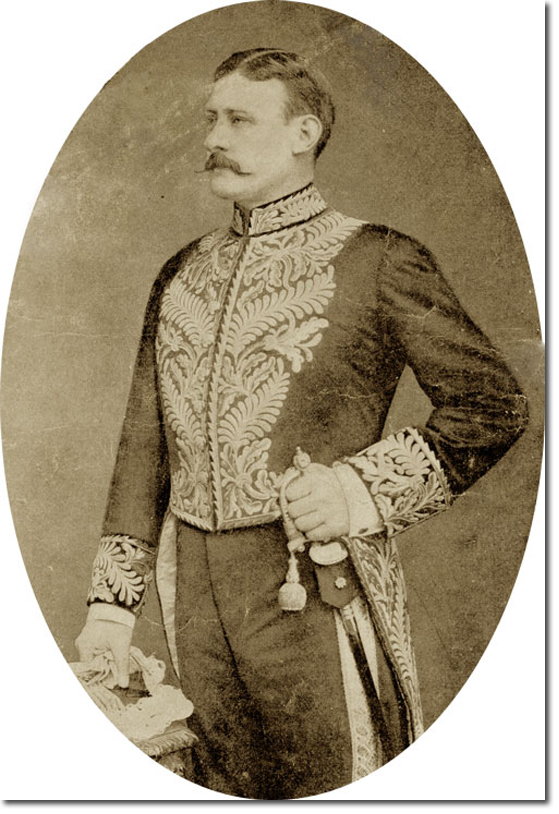|
|


|
|
Sir Henry Arthur Blake had been an Irish policeman and inspector in his early years and the administrative experience he gathered there would stand him in good stead for much of his colonial career.
Henry Blake arrived in Hong Kong just in time for its greatest expansion during its colonial history. Most of the groundwork had already been undertaken during the governorship of his predecessor Sir William Robinson, the Colonial Secretary Sir James Haldane Stewart Lockhart and the military. Indeed, the primary concern for the acquisition of what would become known as the New Territories was defence (see The Acquisition of the New Territories of Hong Kong). Although technically leased on a 99 year basis, no money actually changed hands although the actual transfer required military intervention from the Chinese and the British to facilitate. Sir Henry Blake quickly established himself as a moderating and liberal figure when it came to matters of justice from aggrieved Chinese living in the area who resented the transfer of sovereignty. He quickly agreed to leaving as many Chinese laws and customs as British sensibilities would allow. He appointed Cecil Clementi (later a governor) to implement a system of Indirect Rule which was very much in vogue at that point in time in Imperial Administration. With just a handful of cadets, Clementi was able to oversee a population of 80,000 new Chinese residents and slowly accustom them to life under British rule. And when a murder took place in the newly occupied lands, he refused permission for punitive action and offered a reward instead. His policy resulted in the murderers being caught with no ill will. Blake oversaw a vast improvement in the communications and facilities for the New Territories. But most importantly of all, the ex-policeman oversaw effective policing introduced throughout what had hitherto been quite a chaotic region ravaged by bandits and pirates. As a result of the improved policing and the introduction of incorruptible British magistrates, the system of indirect rule using existing village and community leaders quickly became redundant. Soon Chinese in the New Territories were confident enough to use the courts to resolve any disputes or difficulties - especially as it would challenge the stranglehold of the existing gentry on rents and ownership. Many Chinese were keen to switch their leases to Crown rents for the increased protection they would enjoy. The New Territories were actually exempted from many of Hong Kong's stricter regulations, but over time the two parts harmonised into one another. Blake was soon embroiled in a far more serious challenge when the Boxer Rebellion broke out in neighbouring China. Floods of refugees fled the excesses whilst military travelled in the opposite direction to help stamp out the rebellion. Hong Kong was a relative isle of calm in a region of turmoil. In the aftermath of the rebellion many Chinese dissidents had fled to Hong Kong. Political intrigue and settling of scores continued inside the colony as the collapsing dynasty (which had thrown in its support with the Boxer rebels) tried to assassinate or kidnap revolutionaries. Blake refused to cooperate with official Chinese requests when directed at those seeking asylum in Hong Kong. Picture Courtesy of Heritage Newfoundland |
Hong Kong | Governors of Hong Kong
Armed Forces | Art and Culture | Articles | Biographies | Colonies | Discussion | Glossary | Home | Library | Links | Map Room | Sources and Media | Science and Technology | Search | Student Zone | Timelines | TV & Film | Wargames